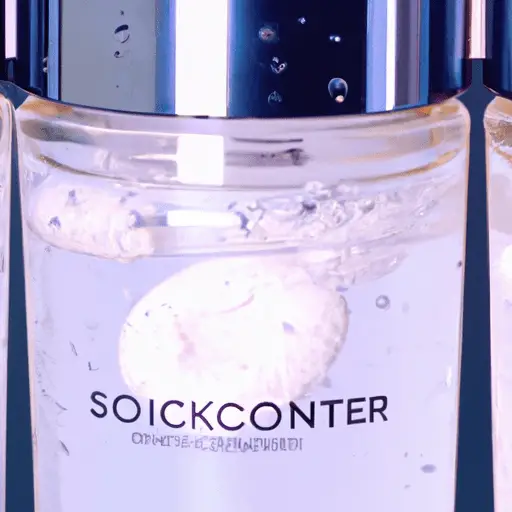-
Table of Contents
- The Science Behind Moisturizers: How They Work to Hydrate and Protect the Skin
- Key Takeaways
- Unveiling the Science of Skin Hydration
- The Key Ingredients in Moisturizers
- The Benefits of Regular Moisturization
- Choosing the Right Moisturizer
- FAQ Section
- Do I need to use a moisturizer if I have oily skin?
- How often should I apply moisturizer?
- Can I use body moisturizer on my face?
- What’s the best way to apply moisturizer?
- Can I use moisturizer instead of sunscreen?
- Conclusion: The Power of Moisturizers
- Key Takeaways
The Science Behind Moisturizers: How They Work to Hydrate and Protect the Skin

[youtubomatic_search]
Key Takeaways
- Moisturizers work by creating a barrier on the skin’s surface, trapping water in the skin and preventing it from evaporating.
- They contain key ingredients such as humectants, emollients, and occlusives that each play a role in skin hydration and protection.
- Regular use of moisturizers can help maintain skin health, prevent dryness, and protect the skin from environmental damage.
- Choosing the right moisturizer depends on your skin type, climate, and personal preference.
- Despite common misconceptions, even oily skin needs moisturization to maintain balance and health.
Unveiling the Science of Skin Hydration
Moisturizers are a staple in most skincare routines, but have you ever wondered how they work to hydrate and protect your skin? The science behind moisturizers is fascinating and involves a complex interplay of ingredients and skin physiology.
At the most basic level, moisturizers work by creating a barrier on the skin’s surface. This barrier traps water in the skin and prevents it from evaporating, a process known as transepidermal water loss (TEWL). By reducing TEWL, moisturizers help maintain the skin’s natural hydration levels, keeping it soft, supple, and healthy.
The Key Ingredients in Moisturizers
Moisturizers contain three main types of ingredients: humectants, emollients, and occlusives. Each of these ingredients plays a unique role in skin hydration and protection.
Humectants, such as glycerin and hyaluronic acid, attract water molecules and draw them into the skin. Emollients, like ceramides and fatty acids, fill in the gaps between skin cells, smoothing the skin’s surface and improving its texture. Occlusives, such as petrolatum and mineral oil, form a protective layer on the skin’s surface, sealing in moisture and preventing TEWL.
The Benefits of Regular Moisturization
Regular use of moisturizers offers numerous benefits for skin health. They help prevent dryness and flaking, maintain the skin’s natural barrier function, and protect the skin from environmental damage. According to a study published in the Journal of the American Academy of Dermatology, regular moisturization can also improve the appearance of aging skin and reduce the risk of developing skin conditions like eczema and dermatitis.
Choosing the Right Moisturizer
Choosing the right moisturizer depends on several factors, including your skin type, the climate you live in, and your personal preference. For example, people with dry skin may benefit from a heavier, oil-based moisturizer, while those with oily skin may prefer a lightweight, water-based formula. Similarly, you may need a more hydrating moisturizer in the winter months when the air is drier, and a lighter one in the summer when humidity levels are higher.
FAQ Section
Do I need to use a moisturizer if I have oily skin?
Yes, even oily skin needs moisturization. In fact, skipping moisturizer can cause your skin to produce more oil in an attempt to compensate for the lack of hydration. Using a lightweight, non-comedogenic moisturizer can help maintain balance and prevent excess oil production.
How often should I apply moisturizer?
Most dermatologists recommend applying moisturizer twice a day, once in the morning and once at night. However, you may need to adjust this based on your skin’s needs and the climate you live in.
Can I use body moisturizer on my face?
While it’s not harmful to use body moisturizer on your face, it’s generally not recommended. Facial skin is thinner and more sensitive than body skin, so it’s best to use products specifically formulated for the face.
What’s the best way to apply moisturizer?
Apply moisturizer to clean, damp skin to lock in hydration. Use gentle, upward strokes to massage the product into your skin, and don’t forget to moisturize your neck and décolletage as well.
Can I use moisturizer instead of sunscreen?
No, while some moisturizers contain SPF, they should not replace sunscreen. Sunscreen provides more comprehensive protection against UV rays and should be applied after your moisturizer.
Conclusion: The Power of Moisturizers
Moisturizers play a crucial role in maintaining skin health and hydration. They work by creating a barrier on the skin’s surface, trapping water in the skin and preventing it from evaporating. The key ingredients in moisturizers – humectants, emollients, and occlusives – each contribute to skin hydration and protection. Regular use of moisturizers can help prevent dryness, improve skin texture, and protect the skin from environmental damage. Choosing the right moisturizer for your skin type and climate is essential for optimal results.
Key Takeaways
- Moisturizers work by creating a barrier on the skin’s surface, trapping water in the skin and preventing it from evaporating.
- They contain key ingredients such as humectants, emollients, and occlusives that each play a role in skin hydration and protection.
- Regular use of moisturizers can help maintain skin health, prevent dryness, and protect the skin from environmental damage.
- Choosing the right moisturizer depends on your skin type, climate, and personal preference.
- Despite common misconceptions, even oily skin needs moisturization to maintain balance and health.
[youtubomatic_search]

Leave a Reply